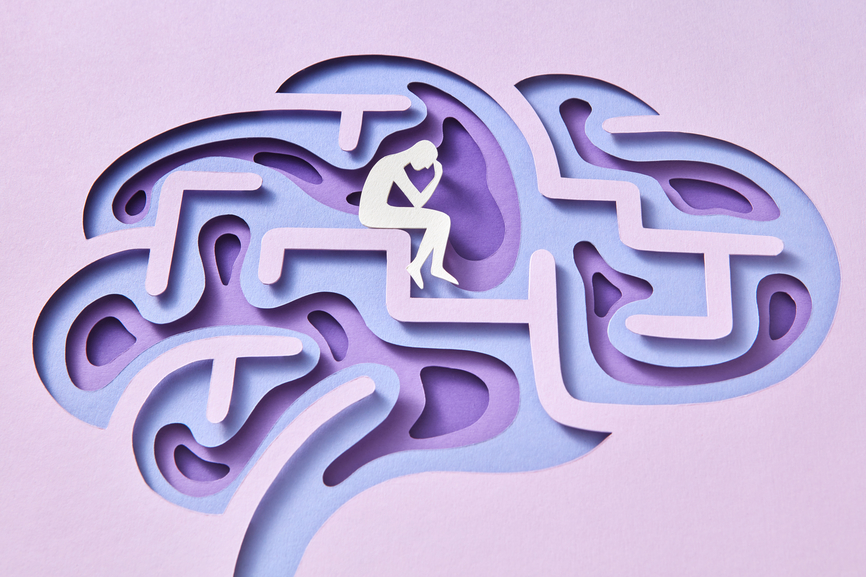Myth #1: It's not natural to be in pain.
It's a long-held misunderstanding regarding mental illness that feeling awful isn't natural. However, mental health issues are an unavoidable part of life. Anxiety affects about 20% of individuals in the United States, and around 7% of people have a severe depressive episode. These figures only relate to diagnosable mental illnesses. People might have mental health issues in a variety of ways, and not all of them necessitate a diagnosis.
https://www.launchora.com/story/finding-the-right-blinds-to-bring-your-visions-to
Breaking the stigma around mental illness requires openly acknowledging the truth that many individuals will require mental health assistance at some time in their life. In a study conducted by the World Health Organization (WHO), approximately half of the participants had been diagnosed with a mental disorder at some time in their life. According to the Centers for Disease Control and Prevention (CDC), one out of every five Americans will suffer from a mental disorder in any given year, even if their symptoms are mild.
Myth #2: There's nothing you can do about mental health issues since they're unavoidable.
Although it's natural to struggle, you don't have to go through it alone. There are effective treatments if your symptoms are preventing you from achieving your objectives or functioning in daily life. Professional mental health treatment is a component of the answer for some people. Self-care and coping skills may provide respite for others. The most important thing is that you feel empowered to take action to improve your mental health.
https://whitneymendoza.gumroad.com/p/how-can-i-repair-my-vertical-blinds
Myth #3: People should be able to manage their mental health problems independently.
No one expects you to walk off the agony if you break your leg. You should expect the same level of attention from a mental health professional as you would from a physician if you were suffering from a physical disease. You may believe that you must cope with your mental health issues on your own. In truth, there is a multitude of resources available to assist you in feeling better.
https://www.recablog.com/window-blinds-or-curtains-which-is-right-for-the-home/
Here are some indicators that you might need professional mental health help:
- You've been stressed, anxious, or depressed for a long time.
- You're irritable, angry, anxious, or depressed all of the time.
- You've noticed a drop in productivity at work.
- You're retreating from your relationships or experiencing issues with them.
- You've lost your motivation and/or are having trouble concentrating.
- You've become more reliant on booze or other substances.
Myth #4: Therapy is unnecessary for those who have excellent support networks.
- Because mental health professionals are bound by privacy regulations, people frequently feel more at ease opening up to them.
- The therapist's goal is to listen carefully and provide you with skills and methods to help you feel better. There's no chance they'll pass judgment on you, take sides, or use the knowledge against you.
- Competent – Counselors, therapists, and mental health coaches have advanced training and may customize therapy to meet your specific requirements. Many people utilize therapies that have been shown to be successful in studies.
Myth #5: Mental illness is a symptom of weakness or a lack of resolve.
Myth #6: Treatments for mental illness are ineffective.
- With the use of evidence-based treatments, the majority of individuals with depression improved or recovered (EBTs).
- The majority of anxious customers improved or recovered.
- More than half of individuals suffering from sadness and anxiety improved or recovered completely.
Myth #7: Mentally ill people can be dangerous.
Myth #8: Only those with serious mental illnesses are eligible for mental health treatment.
- Working with a trained mental health coach can assist you in developing coping skills, setting goals, and resolving issues.
- Self-care apps are self-directed learning tools that allow you to learn effective self-care methods at your own speed. While they can't replace therapy from a therapist or mental health coach, they're a good place to start for those who don't need, want, or aren't ready to meet with a professional.
- Consistent sleep patterns, a balanced diet, frequent exercise, and interacting with people you care about are all examples of good lifestyle practices.

Comments
Post a Comment